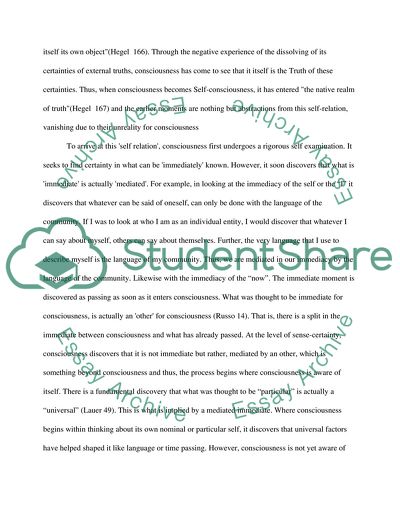Cite this document
(“Hegel's Phenomenology of Spirit Literature review - 1”, n.d.)
Hegel's Phenomenology of Spirit Literature review - 1. Retrieved from https://studentshare.org/philosophy/1752018-subject-modern-political-thought-essay-question-what-is-self-consciousness-in-hegels-usage-and-how-does-it-differ-from-consciousness-why-must-consciousness-become-self-consciousness
Hegel's Phenomenology of Spirit Literature review - 1. Retrieved from https://studentshare.org/philosophy/1752018-subject-modern-political-thought-essay-question-what-is-self-consciousness-in-hegels-usage-and-how-does-it-differ-from-consciousness-why-must-consciousness-become-self-consciousness
(Hegel'S Phenomenology of Spirit Literature Review - 1)
Hegel'S Phenomenology of Spirit Literature Review - 1. https://studentshare.org/philosophy/1752018-subject-modern-political-thought-essay-question-what-is-self-consciousness-in-hegels-usage-and-how-does-it-differ-from-consciousness-why-must-consciousness-become-self-consciousness.
Hegel'S Phenomenology of Spirit Literature Review - 1. https://studentshare.org/philosophy/1752018-subject-modern-political-thought-essay-question-what-is-self-consciousness-in-hegels-usage-and-how-does-it-differ-from-consciousness-why-must-consciousness-become-self-consciousness.
“Hegel'S Phenomenology of Spirit Literature Review - 1”, n.d. https://studentshare.org/philosophy/1752018-subject-modern-political-thought-essay-question-what-is-self-consciousness-in-hegels-usage-and-how-does-it-differ-from-consciousness-why-must-consciousness-become-self-consciousness.


